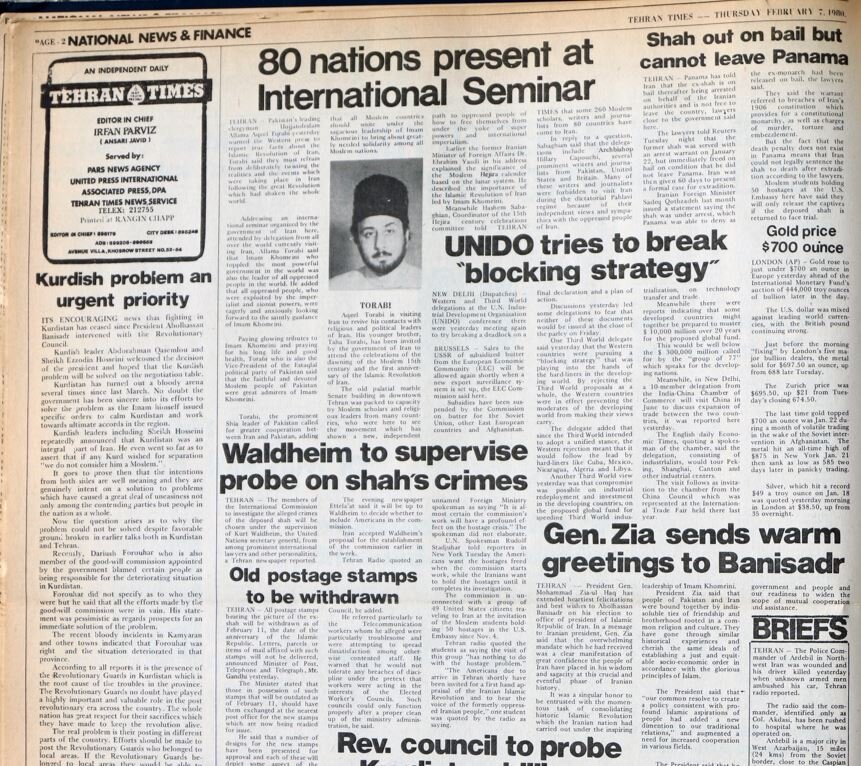Western media wages war against Islamic Revolution early on

The Tehran Times, which began publishing in 1979, was founded during the early years of Iran’s quest for independence. The English-language daily newspaper has been regarded by Mohammad Beheshti, one of the most influential and renowned figures of the Islamic Republic, as the “voice of the Islamic Revolution”.
Such a label, made the staff at the Tehran Times feel an even bigger responsibility to accurately and effectively report the daily occurrences in the country and become a helping hand in the consolidation and entrenchment of the new people-led governance. For that, the paper needed to follow the events with a keen eye and try to draw attention to issues that were essential to be addressed. That’s why with the approaching of the 10-day Fajr occasion, the period from February 1st (Bahman 12th) to February 11th (Bahman 22nd) of 1977 during which Imam Khomeini returned to Iran after 15 years of exile, we have decided to take a look at how the Tehran Times commemorated the historic period in February of 1980. Such an act would help us understand where we stand today, and give us a clearer vision of the hardships Iranians had to endure to be able to celebrate the 45th anniversary of the victory of the Islamic Revolution today. February 1st in the year 1980 was a Friday. The Tehran Times’s covering of the Fajr decade began a day later, on Saturday.
Thursday, February 7, 1980
Western media wages war against Islamic Revolution early on
Western media’s animosity and its biased reporting of the Islamic Revolution weren’t hard to pick up on even in the early days of the Islamic Republic’s establishment. The main media outlets in the West have never managed to decouple from anti-Islam tropes throughout the past five decades.
The West’s portrayal of Muslims and Iranians has very evidently been marred with propaganda and that has always been a source of concern for the Islamic Ummah around the world. People find it unfair that a vast population of people in the U.S. and Europe are being brainwashed to see Muslims as barbaric beings the West needs to wage war against to tame.
Muslims believe that such representation is also baleful towards people in the West, who are being exploited for their hard-earned money that’s being squandered to fan the flames of trillion-dollar conflicts in West Asia.
A report published by the Tehran Times on February 7, 1980, reflected similar concerns of renowned Islamic figures who had gathered in Tehran for an international gathering. One person to speak on the inaccurate and biased representation of the Islamic Revolution was Allama Aqeel Turabi, a prominent Islamic scholar from Pakistan.
“Pakistan’s leading clergyman Hojjatoleslam Allama Aqeel Torabi yesterday warned the Western press to report true facts about the Islamic Revolution of Iran. Torabi said they must refrain from deliberately twisting the realities and the events that were taking place in Iran following the great Revolution which had shaken the whole world.
Addressing an international seminar organized by the government of Iran here, attended by delegations from all over the world currently visiting Iran, Allama Torabi said that Imam Khomeini who toppled the most powerful government in the world was also the leader of all oppressed people in the world. He added that all oppressed people, who were exploited by the imperialist and Zionist powers, were eagerly and anxiously looking forward to the saintly guidance of Imam Khomeini,” The Tehran Times wrote.
Leave a Comment